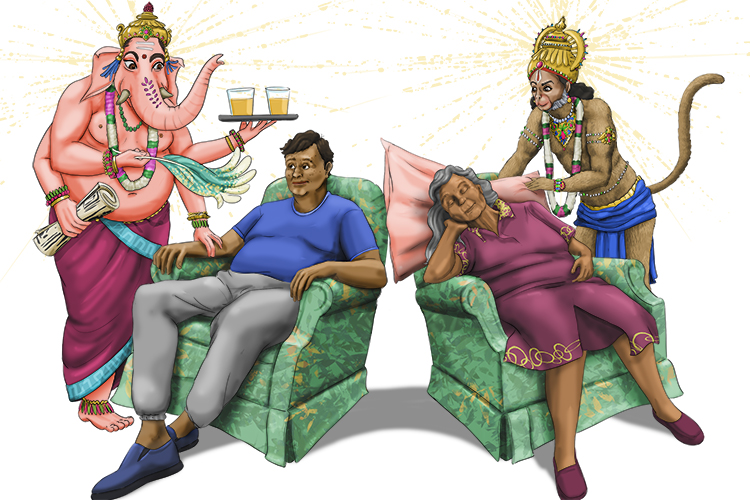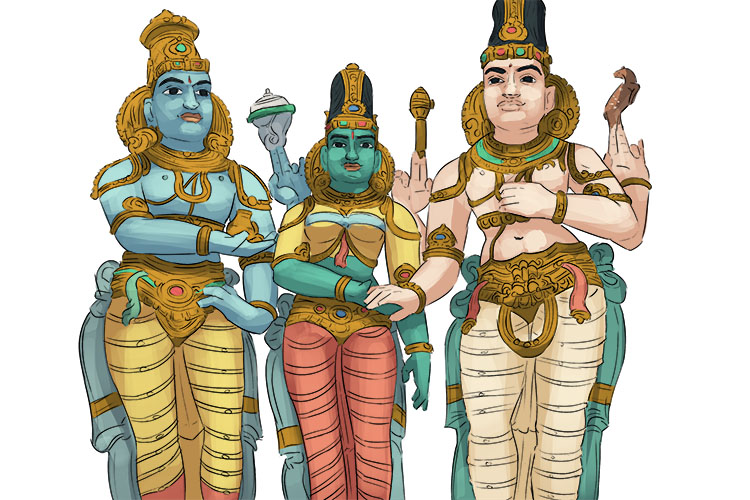Deities – a way in which the divine presents itself: forms of gods such as Ganesha and Lakshim
(Pronounced day-ut-eez)
To remember the meaning of the Hindu term Deities, use the following mnemonic:
They spent the day at ease (deities) after the divine had presented itself to them in the form of gods.

Note: Hindu deities are the gods and goddesses in Hinduism. There are many, yet they are viewed as aspects of the same ultimate reality called Brahman.
Who believes in which deities in Hinduism is far from straightforward. One complicating factor is that Hinduism is divided into five major sects or denominations, and each of these considers a different deity to be the main one.
Another, even more complicating, factor is that Hinduism has millions of deities in total.
Hindus believe that the deities represent different aspects of Brahman, the one true ultimate being.
The names, appearance and acknowledgement of the various deities vary across the Indian subcontinent. Relationships between Hindus and their deities are based on family and community links and on individual life experiences. This means that individuals and families can develop their own preferences and relationships with different gods, even though they stay within normal Hindu patterns of beliefs and rituals.

In general, the main three Hindu deities are:
- Brahma, who creates the universe
- Vishnu, who preserves the universe
- Shiva, who destroys the universe
Together, these three form the Trimurti, the revered triad of gods.




